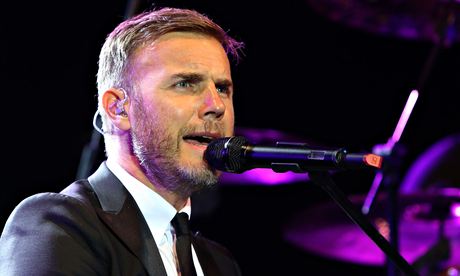Gary Barlow, Howard Donald and Mark Owen among investors likely to face hefty tax bills after tribunal decision

Gary Barlow is among investors who may face hefty tax bills following the ruling. Photograph: Peter Byrne/PA
Around 1,000 wealthy investors including Take That's Gary Barlow, Howard Donald and Mark Owen could face hefty tax bills after a tax tribunal on Friday ruled that a partnership in which they invested was a tax avoidance scheme.
Barlow's Larkdale LLP is just one of 51 so-called "Icebreaker partnerships", affected by the decision of Judge Colin Bishopp in a landmark victory for HM Revenue and Customs. Investors could now face substantial tax bills as a result of the decision.
Bishopp ruled: "The underlying, and fundamental, conclusion we have reached is that the Icebreaker scheme is, and was known and understood by all concerned to be, a tax avoidance scheme."
He accepted the partnerships were carrying on the trade of the exploitation of intellectual property rights, often in the creative industries, but said their main aim was to secure tax relief for members. Icebreaker partnership investments included aspiring pop acts, publishing ventures and the sale of "personal alarms".
In evidence, some unnamed Icebreaker partners had earlier told Bishopp they had a genuine interest in the exploitation of rights, that they took an active role in the partnerships, and that they were aiming to make a profit from these ventures. They claimed: "Tax advantages were incidental to and not the principal reason for their having decided to join a partnership."
The judge did not agree. "We are, indeed, quite satisfied that no serious and even moderately sophisticated investor, or one with a competent adviser, genuinely seeking a profit, even one willing to engage in a high-risk venture, but 20 unmindful of any possible tax advantage, would rationally have chosen an Icebreaker partnership."
Through the partnerships, wealthy investors were claiming lucrative tax losses. In some cases Icebreaker scheme partners were attempting to claim tax relief on losses of up to five times more than they invested in the partnerships.
Take That manager Jonathan Wild was also a member of the Larkdale partnership. Other band members, Jason Orange and Robbie Williams, were not Icebreaker investors.
Details of the scheme emerged in 2012 in a Times investigation. At the time Take That's lawyers insisted the bandmates believed the investments were legitimate enterprises and not schemes designed to avoid tax, and that all four named paid "significant tax". There has been no suggestion of any illegality.
Last night HMRC said: "We have put in place generous reliefs to support genuine business investment and our tax reliefs for the creative industries work well, enabling the UK's world-class film, television and video production companies to compete on the global stage.
"But we will not tolerate abuse of the system by people trying to dodge their tax obligations."
It is not clear whether the judgment will be appealed.


No comments:
Post a Comment